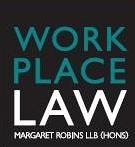Redundancy Legal Advice NZ | Workplace Law | Employment Specialists
When Redundancy Looms: Understanding Your Rights and Obligations
Facing redundancy can be one of the most challenging situations in employment relationships. Whether you're an employer needing to restructure or an employee whose position is at risk, understanding the legal framework surrounding redundancy is crucial for protecting your interests.
At Workplace Law, Margaret Robins brings over 30 years of experience providing redundancy legal advice to both employers and employees throughout Auckland and beyond. Her approach combines legal expertise with practical strategies to navigate this difficult terrain.
The Foundations of a Legitimate Redundancy
For a redundancy to be legally sound, employers must satisfy two fundamental requirements:
- Genuine business justification for eliminating the position
- Fair and proper process throughout the redundancy procedure
Failing to meet either requirement can result in personal grievance claims, potential compensation payments, and damaged workplace relationships.
What Constitutes a Genuine Business Reason?
A legitimate redundancy must be based on authentic business considerations, such as:
- Financial constraints requiring cost reduction
- Technological changes making certain roles obsolete
- Restructuring to improve operational efficiency
- Loss of contracts or clients necessitating workforce reduction
- Business closure or relocation
What Doesn't Qualify as a Genuine Business Reason?
Employers should be aware that the following are not legitimate grounds for redundancy:
- Using redundancy to dismiss an underperforming employee
- Eliminating a position due to personality conflicts
- Restructuring to target specific individuals
- Creating a redundancy situation to avoid disciplinary processes
- Implementing redundancy without proper financial justification
The Essential Redundancy Consultation Process
A fair redundancy process involves meaningful consultation with affected employees. This includes:
- Preliminary planning - Developing a clear business case before approaching employees
- Written notification - Providing a detailed proposal letter outlining the potential redundancy
- Information sharing - Supplying sufficient data for employees to understand and respond to the proposal
- Genuine consultation - Allowing adequate time for employees to consider the proposal and provide feedback
- Consideration of alternatives - Exploring options such as redeployment, reduced hours, or job sharing
- Final decision - Making and communicating the decision after genuinely considering all feedback
Crafting an Effective Redundancy Proposal Letter
Your redundancy proposal letter should clearly communicate:
- The business reasons necessitating the potential redundancy
- How the proposed changes would affect the organisational structure
- Which positions are potentially affected
- The proposed timeline for the consultation process
- An invitation to provide feedback and suggest alternatives
- Information about support available to affected employees
Frequently Asked Questions About Redundancy
How long should the consultation process take?
The appropriate duration depends on the complexity of the situation and number of employees affected. Generally, employees should have at least 5-7 working days to consider the proposal and provide feedback. More complex situations may require longer timeframes.
How many consultation meetings are required?
There's no fixed number, but typically the process involves:
- An initial meeting to present the proposal
- Follow-up meetings to discuss employee feedback
- A final meeting to communicate the decision
Must employers disclose sensitive financial information?
Employers must provide sufficient information for meaningful consultation, which may include relevant financial data. However, commercially sensitive details can be shared under confidentiality agreements or presented in a summarised format that protects business interests while still providing necessary context.
Is redundancy compensation mandatory?
New Zealand law doesn't require redundancy compensation unless specified in the employment agreement. However, some employers offer payments as a matter of good faith and to recognise employee service.
Expert Redundancy Legal Advice When You Need It Most
Workplace Law has extensive experience guiding both employers and employees through redundancy situations:
For Employers: Margaret provides strategic advice on achieving staffing objectives while minimiszing legal risks. She can:
- Draft comprehensive redundancy proposal letters
- Create meeting scripts to ensure legal compliance
- Attend consultation meetings to provide on-the-spot guidance
- Identify potential issues before they become problems
- Prepare final outcome letters that minimise legal exposure
For Employees: Margaret assesses proposed redundancies and provides strategic advice to:
- Evaluate whether the redundancy process is legitimate
- Identify opportunities to retain your position
- Negotiate for suitable alternative roles
- Secure appropriate compensation
- Represent you if the redundancy appears unjustified
Take Action Today
If you're facing redundancy challenges, contact Workplace Law on 027 270 1057 for expert redundancy legal advice tailored to your specific situation. With Margaret's guidance, you can navigate this difficult process with confidence and clarity.

